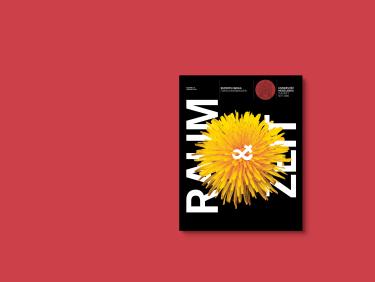
SPACE & TIME
DEAR READERS OF RUPERTO CAROLA,
“A human being is a part of the whole called by us ‘Universe’, a part limited in time and space. He experiences himself, his thoughts and feelings as something separated from the rest – a kind of optical delusion of his consciousness.” Albert Einstein wrote this after publishing his theory of general relativity in 1905, which fundamentally altered our understanding of time and space. “Time and space are modes by which we think and not conditions in which we live.” Today, Heidelberg scientists are following in Einstein’s footsteps as they seek to modify his theory at the limits of current knowledge – this is one of the topics discussed in our research journal entitled SPACE & TIME.
he articles in this 19th edition of RUPERTO CAROLA will take you to the depths of the cosmos, where matter, space and time came into being with the Big Bang approximately 13.8 billion years ago, introduce you to complex biological processes and reveal new aspects of the Old Testament. They explain how a method for geodata analysis developed in Heidelberg helps us better understand the spatial and temporal dynamic of topographical changes and what the online meetings of the coronavirus pandemic have to do with the premodern period in Europe.
I wish you a stimulating and enlightening reading experience that lets you forget time and space for a while!
Prof. Dr Dr h.c. Bernhard Eitel
Rector of Heidelberg University

- Anna Wienhard und Jonas Grethlein: The dynamics of system. At the limits of knowledge
- Jan Christian Gertz: In the beginning god created time and space. Categories of order in the biblical creation account
- Diamantis Panagiotopoulos: Oscillation pendulum. From riches to rags
- Romedio Schmitz-Esser: Together, yet apart. The medieval model

- Bernhard Höfle: Under observation. Environmental models in 4D
- Soledad Álvarez Velasco: Transnational spaces. The migrant experience across the Americas
- Friederike Reents, Tanja Granzow and Jacqueline Lorenzen: Creative crisis. Disruptions and transitions
- Johannes Glückler: The global village. The geography of global economy

- Michael Brunner and Walter Nickel: Switch on – switch off. Controlling the process of life
- Felix Joos: Digitale problem solvers. Fast algorithms and their limitations
- Lavinia Heisenberg: The geometric trinity. A new look at the theory of general relativity
- Andreas Quirrenbach: Planetary neighbours. The search for another earth

- Thomas Schmitt: The dispute over cultural heritage. From the storage memory into the functional memory
- Elisabeth Becker: Strangers across the ages. The Muslim other in Europe
- Siegfried Weyerer: Risk models. The when and where of mental illness
- Lisa-Marie Schütz and Henning Plessner: Slow motion. Human vs. technology in sports




